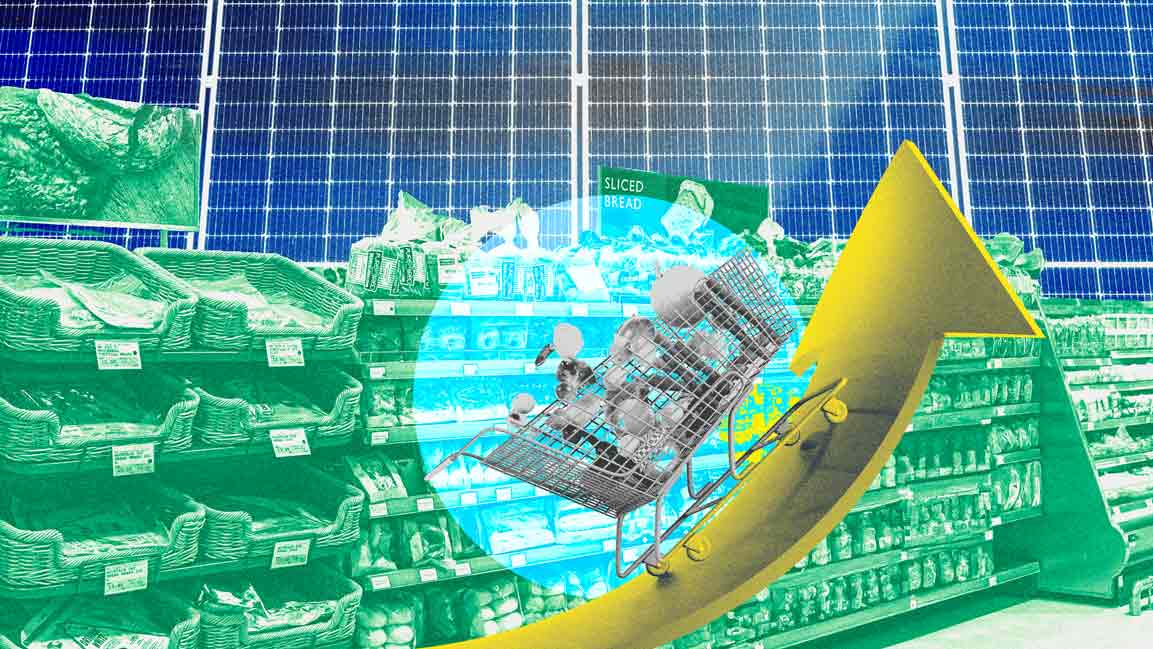- | 9:00 am
How UAE’s new climate law places sustainability into core business strategy
According to experts, the law, which goes into effect May 30, will fundamentally shift how companies approach sustainability in the UAE and across the region.

Sustainability is one of the few social issues people expect companies to act on. Even so, many organizations are not transparent about what they are on track to achieve in realistic terms, their sustainability progress, and what work still needs to be done. But that’s about to change in the UAE.
Marking a pivotal milestone in the country’s climate governance, UAE has enacted Federal Decree-Law No. 11 of 2024 on the Reduction of Climate Change Effects, which will come into effect on May 30. This law makes it legally binding on every company operating in the UAE—even those in free zones—to measure, track, and manage greenhouse gas (GHG) emissions and incorporate climate responsibility into daily business practices, from strategy meetings to supply chain decisions.
It’s a significant shift—and a bold one. The message to businesses is that if the country were to reach net zero by 2050, everyone must be in the game.
The legislation mandates developing and implementing mechanisms to mitigate GHG emissions, enhancing adaptive capacity by mandating national strategies and tools to manage climate risks, and pushing innovation and research to build climate technologies.
Additionally, it seeks to align national economic development with environmental sustainability, integrating climate goals into broader development agendas.
The new law requires companies to disclose their GHGs. According to the legislation, public and private organizations emitting 500,000 tonnes or more of greenhouse gases annually must monitor and report their emissions. Entities with lower emissions can participate voluntarily in the emissions tracking and carbon credit trading system.
“The UAE’s new GHG emissions law is a significant step forward, but implementation won’t be automatic,” says Chandra Dake, Executive Chairman and Group CEO of Dake Group.
“Most businesses aren’t yet equipped with the internal systems or clarity to report confidently. Many companies ask basic questions, but it is important to know the following: Are we measuring the right data? Are we reporting in the correct format? And who can verify our disclosures in a way regulators will accept?” he says.
Dake adds that the challenge is also structural. “There’s a need for usable regional guidance—like digital explainer tools, walkthroughs in local languages, and examples from similar industries. Peer learning will be key.”
“For many SMEs, sustainability hasn’t historically been a core focus; understandably, profitability and survival have taken precedence. This new decree presents an ideal moment to shift that mindset. Support is increasingly available, and with the right guidance, even businesses without in-house sustainability teams can take simple, impactful steps to comply,” says Amer Arafat, Partner at Elementsix.
“It’s not about perfection, it’s about progress,” Arafat adds.
ARE CORPORATES READY?
Experts say that UAE businesses are at varying stages of readiness for the upcoming climate disclosure regulations.
Arafat says, “Many large corporations, especially those in high-emission sectors like energy, manufacturing, and construction, have proactively begun aligning with the UAE’s net-zero ambitions. These organizations have started setting emissions baselines and developing decarbonization roadmaps, demonstrating a commitment to sustainability and regulatory compliance.”
While some progress has been made among SMEs, particularly among newer startups that have embedded ESG principles from day one, many are understandably still catching up, Arafat says, “For many SMEs, sustainability hasn’t historically been a core focus; understandably, profitability and survival have taken precedence.”
Experts say the businesses that will thrive under the UAE’s new GHG emissions law view compliance not as a burden but as a strategic advantage.
By embracing the triple bottom line—profit, people, and the planet— organizations can unlock more sustainable and efficient operations, which often translate into stronger financial performance.
“Investors, employees, and customers increasingly prefer to engage with companies with a lower carbon footprint,” Arafat adds.
“This is a chance for businesses to identify their major sources of emissions and reduce them wherever possible. Lower emissions often mean lower costs, so there’s a real opportunity to improve efficiency, save money, attract new customers, and meet stakeholder expectations. It’s a win-win on every front.”
Dake believes the new GHG emissions law will fundamentally shift how companies approach sustainability in the UAE and across the region. “It brings sustainability out of the CSR section and into the core of business strategy,” he says. “For many companies, the conversation moves from intention to execution. Targets will become action plans, which need to be measured.”
Dake notes that this shift is already driving real change. “We’re already seeing early examples of collaboration, with companies pooling resources for joint water recovery, green logistics, or nature-based solutions. That kind of shared approach is efficient,” he adds. “At Dake Rechsand, we’ve experienced a noticeable uptick in inbound interest from corporates looking to participate in collective efforts. If this trend continues, it will add a new dimension to how sustainability is scaled in the region.”
WHAT’S AT STAKE FOR NONCOMPLIANCE
The penalties under the UAE’s new GHG law are significant enough to prompt serious corporate attention.
“The penalties range from AED 50,000 to 2 million ($3,600 to $545,000), significant enough to encourage serious engagement. However, we expect they’ll be scaled proportionally to factors like company size, sector, and emissions volume, which should help mitigate undue burden on SMEs,” Arafat says.
Experts believe the bigger picture goes beyond fines. “The real takeaway is that tracking and reporting emissions is neither overly complex nor costly when approached methodically. It can be a powerful diagnostic tool,” Arafat says.
“Rather than viewing this as a compliance issue, businesses can see it as a cost-saving opportunity: an invitation to find inefficiencies, improve processes, and redirect wasted resources into growth.”
Specific sectors are bound to face more pressure under the new GHG law than others. Many larger emitters, such as those in real estate, transport, and manufacturing, have already been reporting emissions under sector-specific guidance and regulations.
However, Arafat says these will continue to face the greatest challenges in decarbonization.
“By their very nature, they are energy-intensive, and reducing reliance on non-renewable energy sources can be both complex and costly.”
According to Arafat, investing in R&D is crucial. Innovation will be the key driver of cost-effective decarbonization solutions. “Whether it’s through sustainable fuel alternatives for transportation, waste-heat recovery systems in manufacturing, or energy-efficient building technologies in real estate,” he says.
Dake says digital tools for GHG reporting in the region are still evolving, and many companies are just starting to figure out what works. “That said, the direction is promising.”
“We’re seeing the development of localized emissions tracking platforms, sector-specific checklists, and integrated dashboards that can support both internal reporting and external audits. As these tools mature, they’ll remove friction from the process.”
Change can be unnerving, but many see it as an opportunity for progress. This perspective makes the UAE climate law perhaps the perfect legislation to enforce climate-related reporting, adaptation, and mitigation across all sectors of the country.






































